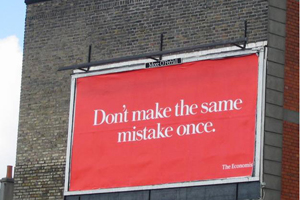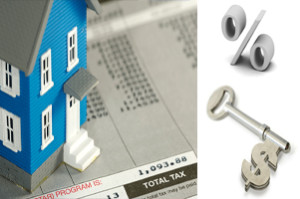 For most people, buying a home is the biggest decision they will ever make. There are many important factors to be considered and many essential steps to take. Below you find a simple road map of what you can expect in the process of buying new home.
For most people, buying a home is the biggest decision they will ever make. There are many important factors to be considered and many essential steps to take. Below you find a simple road map of what you can expect in the process of buying new home.
First Time Buyers Advice
 Pride of home ownership is the number one reason why Canadians desire their own home. Home ownership gives you and your family a sense of stability and security. It’s making an investment in your future. In Canada, especially in the last few years, homes have appreciated considerably and in doing so have added substantially to owners net worth. Also, in Canada your principal residence is exempt from capital gains taxes.
Pride of home ownership is the number one reason why Canadians desire their own home. Home ownership gives you and your family a sense of stability and security. It’s making an investment in your future. In Canada, especially in the last few years, homes have appreciated considerably and in doing so have added substantially to owners net worth. Also, in Canada your principal residence is exempt from capital gains taxes.
Common Buyer Mistakes
 Buying new home is exciting and emotional experience which involves many difficult decisions. Your home is probably the biggest purchase your family will ever make. Often times buyers are simply overwhelmed by the process and tend to overlook some important facts along the way. This could result in making the wrong choice or making your purchase more expensive than it should be.
Buying new home is exciting and emotional experience which involves many difficult decisions. Your home is probably the biggest purchase your family will ever make. Often times buyers are simply overwhelmed by the process and tend to overlook some important facts along the way. This could result in making the wrong choice or making your purchase more expensive than it should be.
Your Guide to Buying a Home
 You have made the decision to buy a home. So, how do you proceed? First start to think about what type of property you’re looking for and what part of the city would you like to live in. You need up-to date observations on how homes you desire are selling right now. And you want to work with somebody who is willing to take the time to explain the process to you, especially if you’re a first-time buyer.
You have made the decision to buy a home. So, how do you proceed? First start to think about what type of property you’re looking for and what part of the city would you like to live in. You need up-to date observations on how homes you desire are selling right now. And you want to work with somebody who is willing to take the time to explain the process to you, especially if you’re a first-time buyer.
Making an Offer
 When it comes time to make an offer you will require current market information and assistance in drafting your offer. You will need a Real Estate Professional. A Real Estate Professional will communicate your Offer to Purchase to the seller, or the seller’s representative, on your behalf. Sometimes there may be more than one offer on a property at the same time. A Real Estate Professional can guide you through this process.
When it comes time to make an offer you will require current market information and assistance in drafting your offer. You will need a Real Estate Professional. A Real Estate Professional will communicate your Offer to Purchase to the seller, or the seller’s representative, on your behalf. Sometimes there may be more than one offer on a property at the same time. A Real Estate Professional can guide you through this process.
Closing Costs
 Closing costs are a list of charges your lawyer presents to you on the closing date of your home. Many people are surprised at the additional costs over and above the price of the home. According to the CMHC and Genworth Financial you should have at least 1.5% of the purchase price for closing costs in addition to the down payment (have around 2.5% to be on the safe side). The costs vary among provinces and cities.
Closing costs are a list of charges your lawyer presents to you on the closing date of your home. Many people are surprised at the additional costs over and above the price of the home. According to the CMHC and Genworth Financial you should have at least 1.5% of the purchase price for closing costs in addition to the down payment (have around 2.5% to be on the safe side). The costs vary among provinces and cities.
Land Transfer Tax
 Purchasers in most large Canadian centres can add Land Transfer Taxes to their list of closing costs. Unless you live in Alberta, Saskatchewan, or rural Nova Scotia, land transfer taxes (or property purchase tax) are a basic fact of life. These taxes, levied on properties that are changing hands, are the responsibility of the purchaser. Depending on where you live, taxes can range from a half a per cent to two per cent of the total value of the property.
Purchasers in most large Canadian centres can add Land Transfer Taxes to their list of closing costs. Unless you live in Alberta, Saskatchewan, or rural Nova Scotia, land transfer taxes (or property purchase tax) are a basic fact of life. These taxes, levied on properties that are changing hands, are the responsibility of the purchaser. Depending on where you live, taxes can range from a half a per cent to two per cent of the total value of the property.
Title Insurance Explained
 Title insurance is growing in popularity in Canada. But what is it exactly? Should you get it? Do you need it? Whether title insurance is right for you is something you should discuss with your lawyer, as it depends on the circumstances of your transaction. This article will provide you with some background information about title insurance to help you make an informed decision.
Title insurance is growing in popularity in Canada. But what is it exactly? Should you get it? Do you need it? Whether title insurance is right for you is something you should discuss with your lawyer, as it depends on the circumstances of your transaction. This article will provide you with some background information about title insurance to help you make an informed decision.
Greater Savings with a Larger Down Payment
 The size of a down payment can vary. Depending on the type of mortgage, down payments generally range from 5% to 20% of the purchase price. To obtain a conventional mortgage, home buyers are required to put down at least 20% of the purchase price or appraised value (whichever is less) as a down payment. If you don’t have the necessary time or resources to save a full 20% down payment, you can choose a high-ratio mortgage and buy a home with a down payment of as little as 5%. This option is called a high-ratio mortgage and it requires you to purchase default insurance.
The size of a down payment can vary. Depending on the type of mortgage, down payments generally range from 5% to 20% of the purchase price. To obtain a conventional mortgage, home buyers are required to put down at least 20% of the purchase price or appraised value (whichever is less) as a down payment. If you don’t have the necessary time or resources to save a full 20% down payment, you can choose a high-ratio mortgage and buy a home with a down payment of as little as 5%. This option is called a high-ratio mortgage and it requires you to purchase default insurance.
